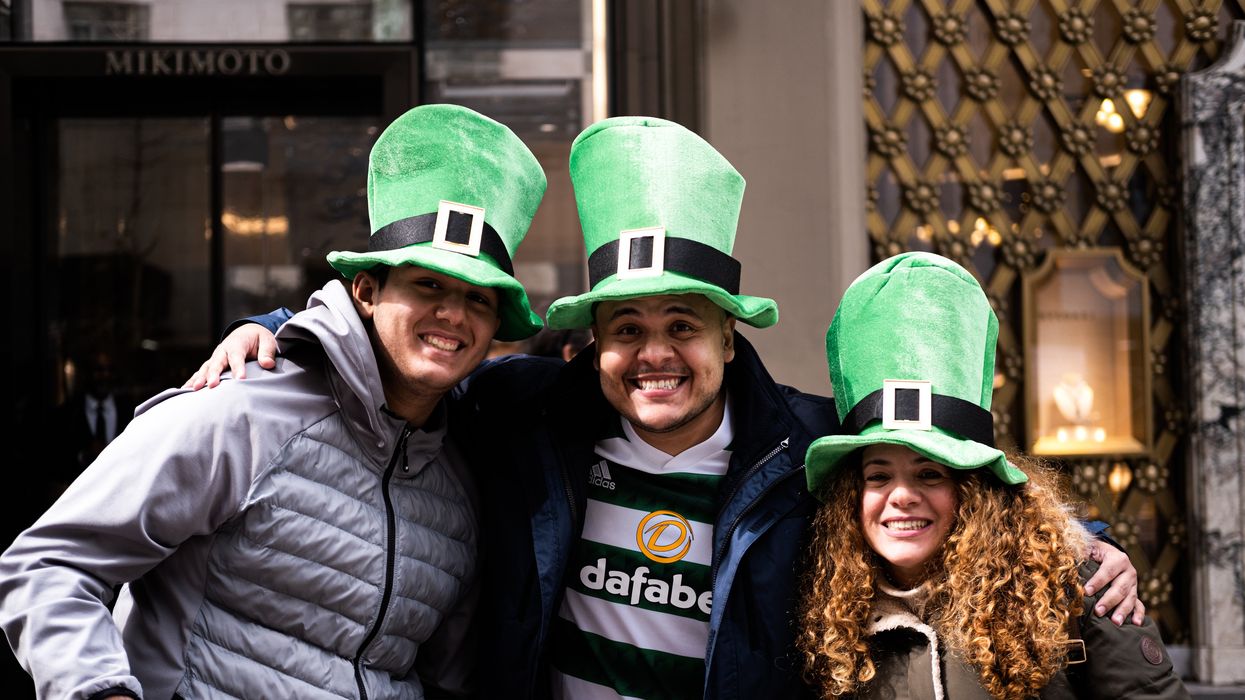Clancy is co-founder of Citizen Connect and board member of the Bridge Alliance Education Fund. Citizen Connect is an initiative of the Bridge Alliance Education Fund, which also operates The Fulcrum.
Let’s make a few things crystal clear right up front. First and foremost, green beer has always been a bad choice and is without any saving grace. I also doubt that even St. Patrick in his prime could drive all the political snakes out of today’s Washington. The history of St. Patrick’s Day itself is not without major warts – particularly regarding who could and couldn’t participate.
But despite these caveats, I believe there is something about America’s version of the holiday that embodies strengths our nation can and should lean into – particularly going into a high-stakes, take-no-prisoners election year.
This suggestion isn’t coming from a rabid St. Patrick’s Day fan. Growing up with a distinctly Irish name, I was ambivalent at best about a holiday that reinforced so many caricatures and myths. As a kid (with a big dose of adolescent snark) I would say it was my job to be Irish 364 days a year and March 17 was my one day off. I also saw many efforts to define Americans by ethnic, religious or racial differences doing more to fuel divisions than to build healthy pride.
As time went by, I’ve softened my view. What brought that about? Part of it was learning more about history. We’ve been at this in America for a very long time – in fact our first St. Patrick’s Day parades took place well before the Declaration of Independence was signed. First as a reflection of Irish pride (and sometimes defiance), over the centuries they have become more welcoming. Like the greatest aspects of the American story itself, more and more people have been allowed to participate – both as parade marchers and celebrants.
This hasn’t come easily (it never does) and even involved a landmark Supreme Court case concerning access for LGBTQ groups. Today it can feel like the Supreme Court decides everything, but while that decision actually affirmed the right to restrict parade participation it wasn’t the final word. What turned the tide was changing attitudes and the willingness of political and business leaders to stand up for pitching a bigger tent.
As important to changing my attitude was personally witnessing several St. Patrick’s Day “miracles.” These included a longstanding breakfast tradition in Boston that features Republicans and Democrats putting aside their differences and making jokes rather than scoring political points. Humor is a really important part of the St. Patrick’s Day magic. Punch lines that are bitter and come at the expense of others feed our collective anxiety and anger. Laughing at ourselves and with each other is what heals and builds bridges.
I’ve also attended multiple parades – including a big one in my conservative Florida town – where I’ve seen a cross-section of Americans joyfully marching and cheering each other on. Celebrating anything as a community is a very beautiful and powerful thing – and all too rare in today’s America.
The sad fact is that navigating holidays has become much too complex and politized lately. We now need to walk on eggshells when we sincerely offer best wishes – for example, the whole “Merry Christmas” vs. “Happy holidays” thing. To date, St. Patrick’s Day has been spared – and it’s really important we keep it that way. There are no sides to take, nobody is keeping score, and it isn’t about red and blue – it’s just about different and often crazy shades of green that are almost invariably unflattering. Just come as you are to celebrate Irish culture and/or the coming of spring. It’s an example of what America can be at its most authentically exceptional and unpretentious.
We desperately need to expand the number of special days like this – when we put aside “us vs. them” thinking and come together. We need days where we can wear silly stuff, not talk politics, and celebrate the contributions of different members of the American family. This attitude and the values behind it should have an important role to play every single day.
For example, I can envision Election Day as a celebration of these aspects of the American character. Sure we will vote for different candidates, but we could also see it as an opportunity to express shared gratitude for the freedoms we enjoy and for those who sacrificed so much to secure them for us. The bottom line is that St. Patrick’s Day shows we’re capable of celebrating together without putting our differences, frustrations and anger front and center. If we can pull that off (albeit imperfectly) for even one day, it means we can do it more often. I sincerely believe that for the American experiment to survive and thrive we need to find the wisdom and courage to do just that.
BTW – if our toxic politics is making you consider green beer or even something stronger to deaden the pain, try Citizen Connect first. It’s a nonpartisan online platform I co-founded that puts 600 organizations dedicated to finding common ground at your fingertips.




















Trump & Hegseth gave Mark Kelly a huge 2028 gift